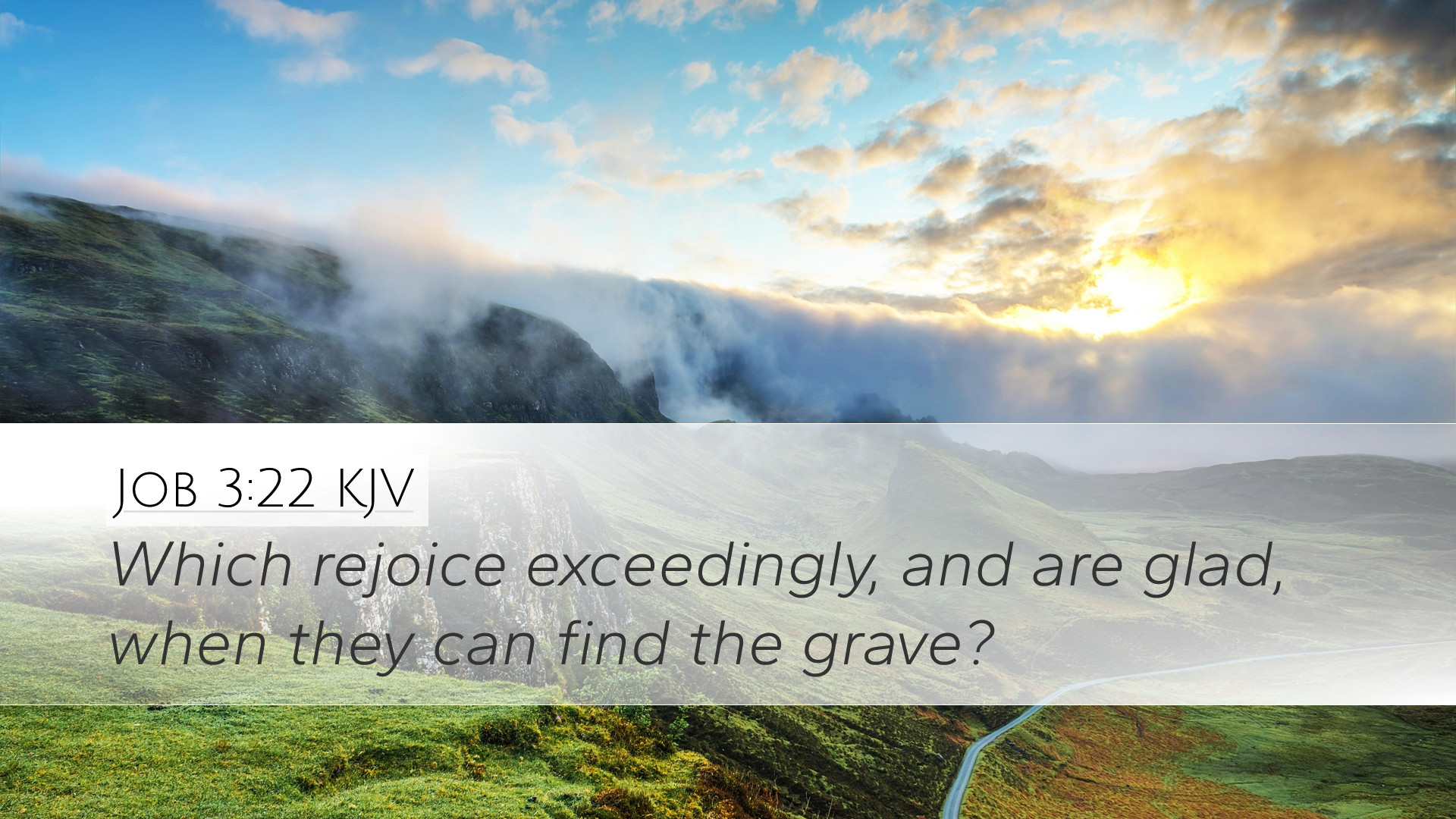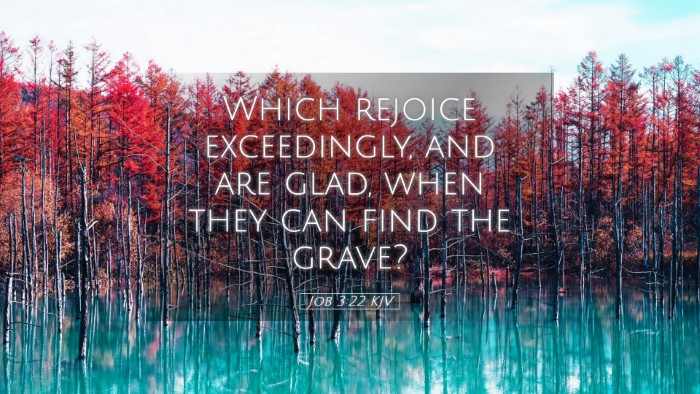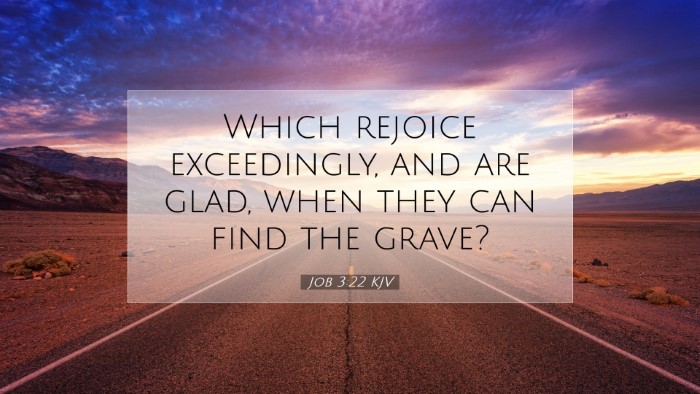Old Testament
Genesis Exodus Leviticus Numbers Deuteronomy Joshua Judges Ruth 1 Samuel 2 Samuel 1 Kings 2 Kings 1 Chronicles 2 Chronicles Ezra Nehemiah Esther Job Psalms Proverbs Ecclesiastes Song of Solomon Isaiah Jeremiah Lamentations Ezekiel Daniel Hosea Joel Amos Obadiah Jonah Micah Nahum Habakkuk Zephaniah Haggai Zechariah MalachiJob 3:22
Job 3:22 KJV
Which rejoice exceedingly, and are glad, when they can find the grave?
Job 3:22 Bible Commentary
Job 3:22: "Who rejoice exceedingly, and are glad, when they can find the grave."
Introduction
The verse from Job 3:22 encapsulates Job’s lament and deep sorrow over his existence amidst suffering. It highlights a paradoxical joy in death as a refuge from the miseries of life. This commentary synthesizes insights from various public domain resources to illuminate the meaning of this passage.
Context of Job’s Lamentation
In the broader context of Job's lament (Job 3), he is expressing profound grief over his condition after losing his health, wealth, and family. Job’s sorrow leads him to wish for death, which he sees as an escape from his intolerable suffering.
Insights from Matthew Henry
Matthew Henry emphasizes the extreme anguish of Job as he articulates the idea of longing for death. Henry notes that Job’s desire for death stems from his contemplation of the grave as a place of rest, contrasting with his current state of turmoil. Here are some key points from his commentary:
- Despair and Isolation: Henry reflects on Job’s despair, highlighting that such profound sorrow can lead individuals to find solace in thoughts of death.
- Grave as a Refuge: The grave is portrayed as a place where one is free from pain and suffering, which resonates with the human desire for peace in the face of tribulation.
- Joy in the Context of Suffering: Job distinguishes between ordinary joy and a specific joy in death, which he sees as a release from his current afflictions.
Perspectives from Albert Barnes
Albert Barnes offers a theological examination of the implications of Job’s statement. He suggests that the verse speaks to the human condition and our existential struggles. Key insights from Barnes include:
- Universal Suffering: Barnes argues that Job's lament is representative of the broader human experience of suffering and the question of meaning in pain.
- Hope Beyond the Grave: While Job mourns the loss of life’s joys, Barnes subtly advocates for a theological view that looks beyond death to potential resurrection and restoration.
- Contrast with Worldly Joy: Barnes highlights the juxtaposition of earthly joys against ultimate despair, suggesting that true fulfillment cannot be found in the material but rather in connection to God.
Reflections by Adam Clarke
Adam Clarke’s commentary delves into the critical nature of desires expressed in the verse. He approaches Job's assertion with a psychological and emotional lens:
- Emotional Release: Clarke points out that for Job, the mention of the grave is tied to an emotional release and indicates a state of want where despair is overpowering.
- Philosophical Interpretation: Clarke sees Job’s lament as a philosophical inquiry into life and death, stressing that Job is grappling with the meanings of existence amidst profound suffering.
- Spiritual Reflection: He emphasizes the need to recognize death not merely as an end but as a significant transition, provoking deeper reflection on eternal significance.
Theological Implications
This exploration of Job 3:22 highlights several vital theological implications:
- The Nature of Suffering: The verse forces a confrontation with the reality of suffering and the human inclination to seek escape through death.
- Hope and Despair: It raises questions about hope in the midst of despair – can feelings of despair coexist with a hope for redemption and a meaningful existence?
- Understanding Death: The theological view of death as a rest may provide comfort; a belief in the afterlife or resurrection adds layers of hope for believers.
Conclusion
Job 3:22 serves as a poignant meditation on the human condition. The insights from public domain commentaries provide a comprehensive understanding of how this verse articulates the struggles of suffering, the desire for relief, and the complex relationship between life and death. Through the lenses of respected scholars like Matthew Henry, Albert Barnes, and Adam Clarke, readers are encouraged to reflect deeply on the nature of their pain, the quest for meaning in suffering, and the hope that transcends even the grave.


